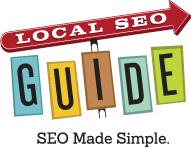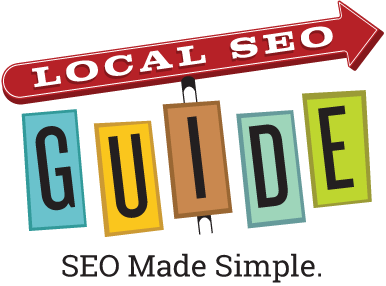A lot of you have been asking for a copy of the presentation I gave at last week’s Interactive Local Media conference. The subject was how to use keyword research and site architecture to help a site rank for variations of searches for service categories in a particular city.The challenge most local search sites have is that they are prisoners of their architecture which typically targets two types of searches: business name and category-in-city (e.g “plumber in Los Angeles”). So how can you expand the types of searches you can rank for without having to build an expensive new site?
Check out the powerpoint presentation. I looked at some sites that rank high in Google for variations on the term “plumbers in Los Angeles” and researched some possible reasons why each may rank for their term. Here’s a summary of the different tactics they used that you can use for your site:
1. Multiple variations in title tags. For example the title of this page on Magic Yellow is “Los Angeles Plumbers | Los Angeles Plumbing Company” and they rank for both.
2. Content. 1800Anytime uses the word “plumbing services” all over its site and so they rank well for “Los Angeles Plumbing Services”.
3. Alternative Navigation Paths. Yelp created a page which lists links to pages with popular variations of the page titles in the anchor text of the links. For example a link called “Restaurant Austin” links to a page titled “Austin Restaurants” in an attempt to rank for both searches.
4. Micro-Categories/Tags: Yellowbot is the king of the local search tag page which enables them to target multiple variations of plumber searches like “plumbing contractor”, “plumber” and “plumbing”.
5. Targeted Backlinks: If you can’t get the page to rank by tweaking the content of the site you can always get a link from another site that contains relevant anchor text. Check out this link for “Los Angeles Emergency Plumber” which I am assuming was purchased to help TVPlumbing.com rank for that term.
Here’s the presentation: Keyword Expansion for Local Category Search


15 Response Comments
I have tested title tags on my own site and have been able to rank for many local and not so local search terms based on this Meta tag alone. Some of these search phrases are quite long tail but the traffic is targeted.
I work with several local businesses and love it!
Real estate being the most challenging but problems CAN be overcome if the Realtor isn’t a loafer.
David
Never underestimate the power of the title tag Mr. Unkie.
Referencing slide 2, why did the terms “plumbing los angeles” and “plumbing and los angeles” turn up different #1 sites on Google? I thought Google ignored “and”, “the”, and other stop words, even telling users not to bother including these in search terms.
Reid
The short answer Reid is that G interprets “plumbing and los angeles” as a Web search and “plumbing los angeles” as a local search. I am not sure why that is but currently in either case the Web part of the results are the same. Magic Yellow now is at the top for both. My guess is that my linking to them via this post caused the change from when I put this data together.
Andrew,
Perhaps you can answer a question I have around YellowBot’s use of tags to create multiple variations of pages. Upon review of their “plumber” and “plumbing” pages, I see they contain identical result listings.
So why aren’t theses viewed by Google as pages with duplicate content, which my understanding is they penalize for.
The same could be said for their “dining” and “restaurants” pages and other.
Steve
Steve,
They likely have some big dupe content issues but as Google will tell you this is not a “penalty, it’s a filter”. So I think what’s going on is that the page that has the greatest internal link strength is more likely to get ranked for the relevant term. That said , both pages could rank for their specific search terms (e.g. plumber or plumbing) – I’ve seen this happen with almost total dupes. The issue is that YBot is diluting the links by having two identical pages targeting related terms. If they focused all the links on a single page they might be able to boost their rankings for that page.
Great stuff!
Thank you for using our website as an example. You’re comments and suggestions helped us a lot.
Anytime Anytyme
Thanks for these great tips. Very useful for a beginner like myself!
You think that using the targeted term more times in the text will help rank for that term without the help of backlinks?
I believe it won’t be enough..not even for long tail keywords. What you think?
Cheers,
Depends on how competitive the term is.
I mean competitive enough to get a few searches at least every day..not a 5-6 words phrase with a couple of searches a month
Would be enough just to have the words in the text?
Thanks
While I agree that having backlinks is crucial, I have seen improvement in good niche terms, particularly local niche terms, simply by updating on-page text. But I would agree that most pages will go nowhere without backlinks.
In my opinion the”|” symbol means “or ” for Google.